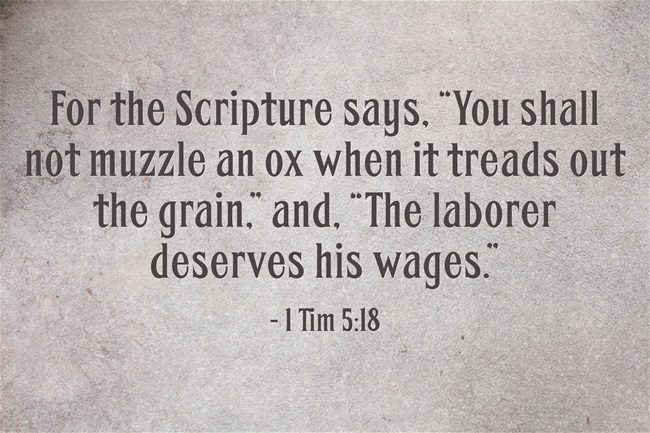What is the personal parsonage tax allowance for a pastor?
Ministerial Benefits
Not every church provides a parsonage but for those that do, there are some allowances for the pastor and his family in living there, but these allowances are not just for pastors but for certified teachers, DCEs, DCOs, deaconesses, parish assistants, certified lay ministers, directors of parish music and directors of family life ministry. They can also be for missionaries or for evangelists that the church puts up in the parsonage or any other number or faith-related reasons. The best advice is to speak with your tax professional. It is worth having a professional tax preparer in most cases, unless your expert enough in that field already.
A Parsonage Tax Allowance
According to the IRS, a licensed, commissioned, or ordained minister may be able to exclude from his income the fair rental value of a home (a parsonage) or a housing allowance provided as compensation for ministerial services performed as an employee of the church. A minister who is furnished a parsonage may exclude from his income the fair rental value of the parsonage, including utilities, however, the amount excluded cannot be more than reasonable compensation for the minister’s services the parsonage tax allowance cannot exceed the fair rental value of a parsonage or the housing allowance. The minister must include the amount for self-employment tax purposes which is a totally separate allowance and cannot be included as part of the fair rental value tax allowance, but in either case, the IRS requires that they use the lowest fair rental value be used. For example, if a two bedroom, one-and-a-half bath home rents from around 450 to 600 a month, the $450 allowance should be used for tax purposes, although, oddly, the IRS has no written procedures concerning the method or frequency for determining this value.
No Parsonage
If a pastor has to use his own home in determining the amount “used” to rent or provide a home, a minister may take into account all of his payments for repairs, real estate taxes, mortgage payments (both principal and interest), insurance, lawn care, utilities, furniture, remodeling and other home improvement, however a minister who receives a housing allowance may exclude the allowance from gross income to the extent that it is used to pay expenses in providing a home. If it isn’t, then it can’t be used as part of the parsonage allowance. Once again, he tax allowance for a parsonage depends on the fair rental value of a home and the lowest of those local values for the similar house that is being assessed. If all of the rentals are about seven hundred dollars a month, then that the lower of the fair rental value of that parsonage is seven hundred dollars because that what the parsonage’s fair rental value is, even at its lowest.
Conclusion
This article is simply to give you an overview of the parsonage allowances for tax purposes. It most certainly cannot be taken for legal advice or that directly from the IRS so it is best to seek the counsel of a certified public accountant or a professional tax preparer. A designated housing allowance is used to rent or provide a home and cannot exceed the furnished home’s fair rental value plus utilities, and so it is not subject to federal income tax. It is worth looking into the advantages that a parsonage tax allowance offers. This is even more important for the growing numbers of bi-vocational or working pastors. It is made more difficult when you are not paid a salary but only a pulpit supply, if anything. Some weeks, he may receive nothing, but may the Apostle Paul words encourage and admonish you as he wrote, “let us not grow weary of doing good, for in due season we will reap, if we do not give up” (Gal 6:9) but rather, think of Jesus Christ and “Consider him who endured from sinners such hostility against himself, so that you may not grow weary or fainthearted” (Heb 12:3) and so “Have this mind among yourselves, which is yours in Christ Jesus; who, though he was in the form of God, did not count equality with God a thing to be grasped, but emptied himself, by taking the form of a servant, being born in the likeness of men. And being found in human form, he humbled himself by becoming obedient to the point of death, even death on a cross” (Phil 2:6-8).
Article by Jack Wellman
Jack Wellman is Pastor of the Mulvane Brethren Church in Mulvane Kansas. Jack is also the Senior Writer at What Christians Want To Know whose mission is to equip, encourage, and energize Christians and to address questions about the believer’s daily walk with God and the Bible. You can follow Jack on Google Plus or check out his book Teaching Children the Gospel available on Amazon.












